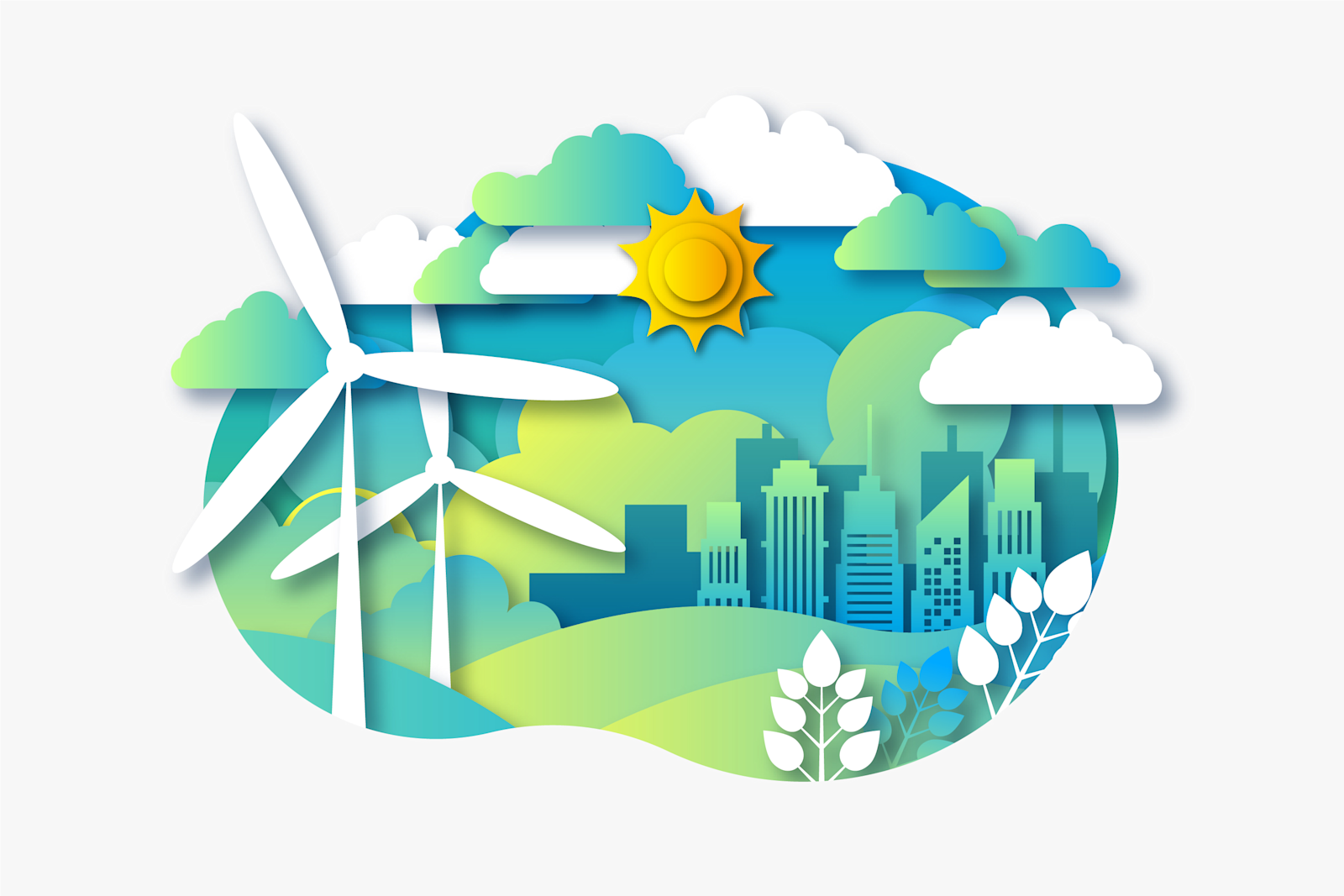It’s understandable to feel overwhelmed by the scale of the climate emergency. Each day seems to bring new concerns and as the problems pile up it can be difficult to see how we can help turn things around. Climate change and nature loss are threatening the population of the world and the effects are already being seen right here in Scotland.
However we can be encouraged by the action Scotland is taking. The Scottish Government has committed to reaching net zero emissions by 2045 - one of the most ambitious emissions targets set by any country in the world and we all need to do our bit to help make it happen.
The Scottish Government’s campaign, Let’s do Net Zero, aims to help by sharing the lifestyle changes we need to make to help cut carbon emissions and reduce our impact on our climate. It focuses on four key behaviours we can change - what we buy, how we travel, what we eat, and how we heat and power our homes.
For individuals, it’s about a range of changes to our lifestyles that will go a long way to making big changes for the planet. Buying a Tesla and going vegan overnight won’t be possible for everyone, but for anyone who is feeling the weight of the world’s climate issues it is amazing how reducing food waste, leaving the car at home for short journeys, recycling relevant items including food scraps, eating more locally sourced produce and being more efficient with the energy in your home can make you feel like you are taking positive action.
In Edinburgh and the Lothians there are some amazing people, charities and businesses who are championing the kind of changes that make it easier for us to do the right thing by planet Earth. I was lucky enough to chat with four of them and learn about how they are helping others to live better.
Willow Farm, Newtongrange
Michelle Dickinson runs Willow Farm with her ex-international rugby player husband Alasdair. First generation farmers are a rare thing and with a background in fitness and the police force Michelle’s new career path is certainly a fresh challenge. The couple moved to Willow Farm in 2013 and started out with just an acre of land. Negotiating the purchase of an overgrown willow plantation next door gave the couple more space, but they were conscious that starting small was the key to success.
‘Getting into farming was something that we’d been talking about for a long time,’ says Michelle. ‘We decided to go for it to see if there was the demand there. We thought that chickens would be a good option. They’re good for the soil, they’re quite small and financially there’s less outlay than for cows and sheep. And there’s the fresh eggs every day!’
Living in a rural community close to lots of towns and villages in Midlothian has seen the farm sell out of fresh eggs every day, with local people flocking to their honesty stand and booking deliveries of delicious fresh eggs from the free-range girls at Willow Farm.
‘We’re really interested in regenerative agriculture and concerned about climate change,’ Michelle tells me. ‘All of the research and science tell us that modern day agriculture has degraded the topsoil to such a degree that we may not have that many harvests left. We really need to think about how we can change the way we do it and put new systems in place to benefit the environment and increase biodiversity.’
With plenty of space to expand Michelle has plans to grow lots more veg, put in a big poly tunnel and create a pick-your-own area. With a young son and another baby on the way she’s also really passionate about education and teaching kids about food production. So, what advice would Michelle give to any Eggs who want to make positive changes now?
‘It’s the little things that really matter. Recycle everything that can be recycled, carshare or don’t use the car as much, even just planting things in your garden. There are so many things you can do every day that won’t cost you a penny. Be aware of food waste. Even tatties that have gone to seed can be planted and will provide you with 20 tatties for that one rotten tattie. It is all about changing our mindset.’
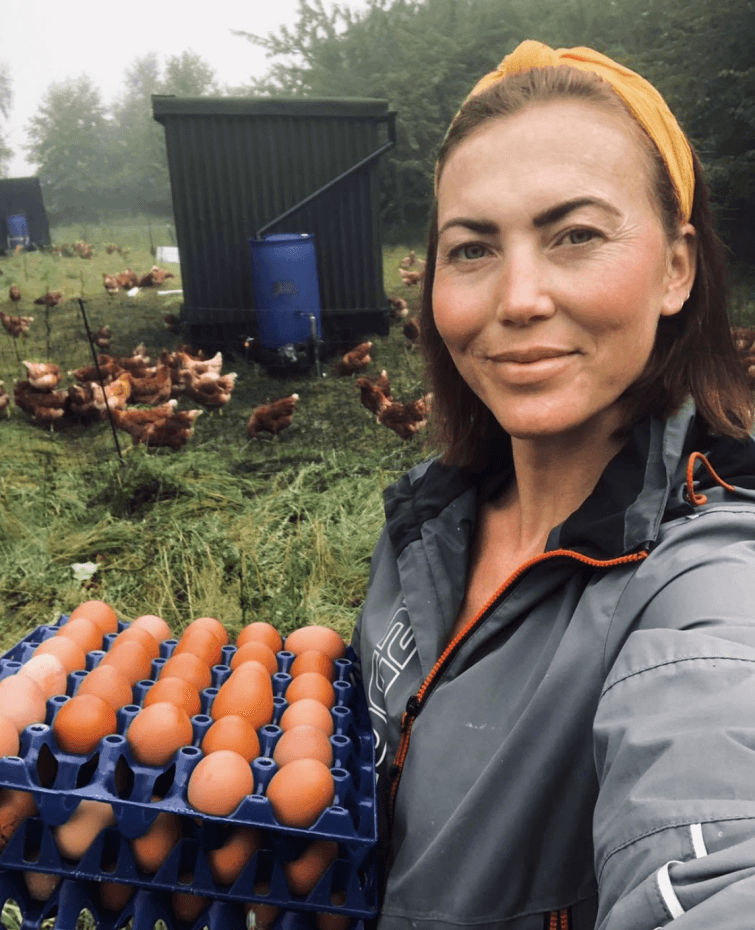
Wendy Graham lives near Edinburgh with her partner and two children. By day she works to promote sustainable transport, but spurred on by post-partum hormones and a feeling of despair at the state of the world she has also become an online eco-warrior, writing her blog Moral Fibres. The blog is a treasure trove of information on all things sustainable. It provides a one-stop-shop to anyone who wants to make lifestyle changes. ‘I know that navigating the sustainability maze can be difficult,’ Wendy says. ‘From distinguishing products that are actually green from greenwashing, to knowing the things you can do to actually make a difference. My aim is to make this information easy and accessible for people.’
For Wendy, environmental issues have been a huge part of her life for as long as she can remember. Studying Environmental Geography and then Environmental Sustainability preceded her career in the sustainability sector. But Wendy is keen to stress that you don’t need qualifications to be an advocate for climate justice. ‘Taking on the collective responsibility of holding oil and gas companies accountable, and demanding action from the 100 companies that create 71% of global carbon emissions needs everyone, not just experts,’ she says.
Moral Fibres covers a range of topics related to living a more eco-friendly life. Ethical clothing is a hot topic, as is how to look after the clothes you already own and how to spot greenwashing and businesses who are merely targeting the green pound. Empowering readers to take action is just as important to Wendy as helping them shop sustainably and you can find templates to write to your MSP about various issues, such as opposing the Cambo Oil Field development, on Moral Fibres. Wendy also writes about natural cleaning, a subject so close to her heart that she has written a book called Fresh Clean Home: Make your own natural cleaning products about it.
I asked Wendy what advice she would give to any Eggs who were ready to make changes to their lives to help Scotland achieve Net Zero. Her response was as inspirational as her blog.
‘Buying ethically made or plastic-free items makes a small difference. Avoiding buying things that you don’t need makes an even bigger difference. From borrowing (Edinburgh has a fantastic tool library for example), to repairing and mending, to shopping second-hand, and upcycling items you already own, these are all super sustainable and often accessible to more people.
‘Another really impactful thing you can do is to move your money, including your pension, to banks that don’t fund fossil fuel companies. Lending your support to campaigns against fossil fuels is another great and accessible step you can take to potentially make a big difference.
‘There are lots of ways to help - don’t let the idea that you can’t take part in demanding action on climate change because you drive a car, have been on a plane, or are reading this article on a smartphone or laptop be a barrier. Just take part - we need as many voices as possible calling for action on climate change in order to reach Net Zero.’
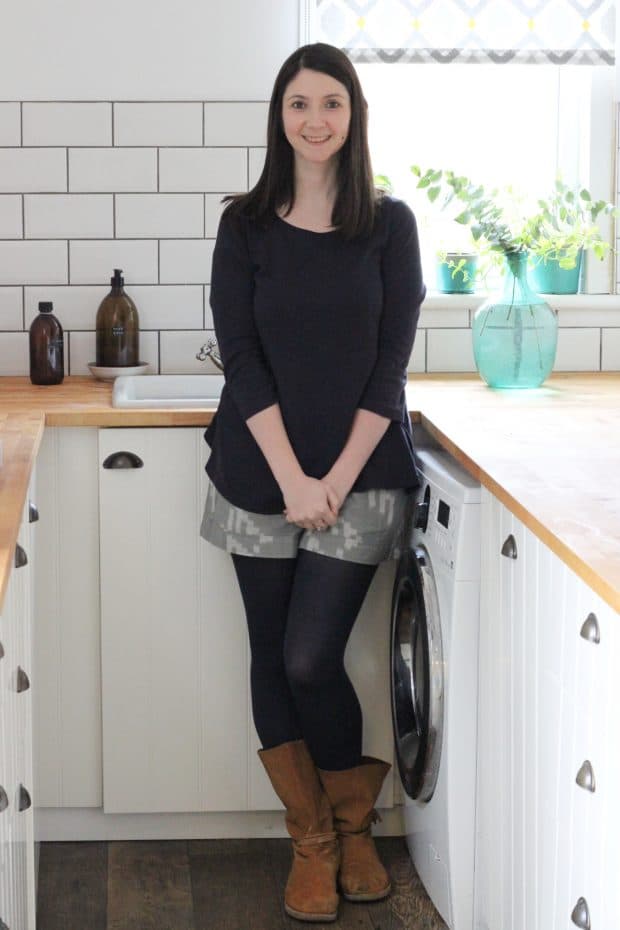
Elephant Refills, Edinburgh
If you live in Davidson’s Mains there’s a good chance you might have seen Alison Powell riding the Elephant Bike, a refurbished Royal Mail bike that she uses to deliver refilled bottles of household cleaning, laundry and body & hair care products to doorsteps. Alison set up the business after listening to a radio programme extoling the virtues of reusing. ‘For a few years, as a household we had been making more sustainable choices in terms of the food we were eating and the products we were buying, so refilling seemed like the obvious step,’ she tells me. ‘However, it soon became clear that for a lot of busy people and families it could be time-consuming and not that easy.’
With the aim of making refilling more convenient Alison started Elephant Refills in September 2019 and her business continued to grow throughout the pandemic. She now delivers to over 70 households in her local area.
Similar to an old-style milk delivery service. Alison’s customers leave their empty bottles on their doorstep for her to collect and she replaces them with full ones. All of the products are environmentally friendly, non-toxic and kind to the planet. Customers can have their own bottles refilled or use Elephant Refill’s bottles which are made from recycled plastic.
It was Alison’s daughter who inspired her whole family to be more aware of the environment and climate change. ‘I supported her with the changes she wanted to make to our everyday lives’, says Alison. ‘I’m no expert and have to make compromises every day. It saddens me that even the small things you can do to make a difference take more time, more energy, more effort and more money, which all makes it more difficult for people. I think the key is to start small, find a few things that you can do to make a difference and build from there.’
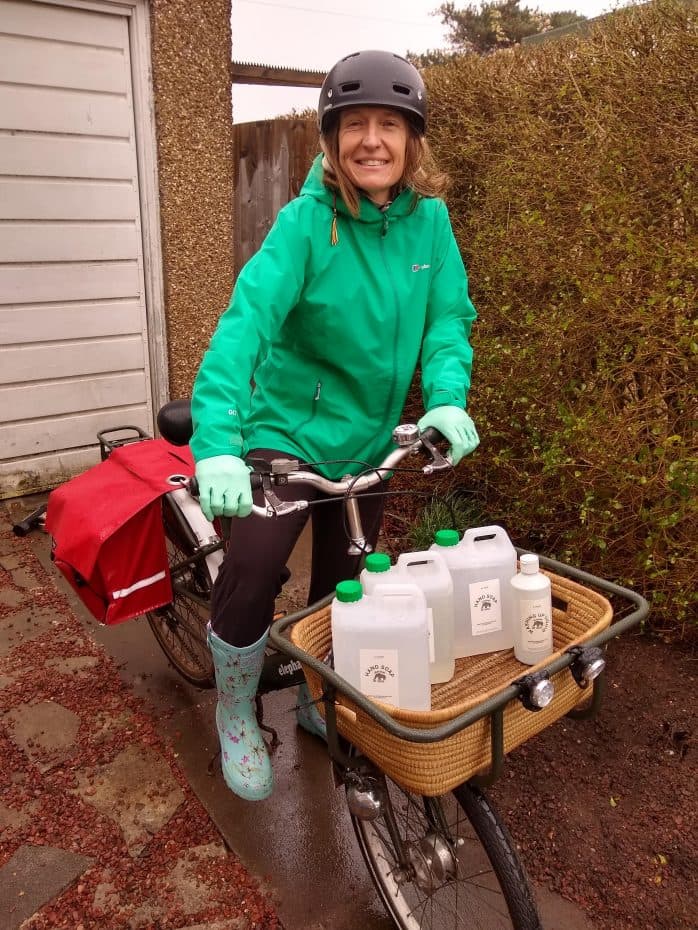
Bliss Bridal Studio, Edinburgh
Bliss Bridal Studio helps brides and businesses sell preloved, sample and new wedding dresses, preventing them going to landfill. Owner Stephnie Rooney has been making wedding dresses for 20 years and opened Bliss in 2011. Acutely aware that the fashion industry is the fourth biggest polluter in the world after energy, transport and agriculture, she is passionate about people changing the way they think, buy and consume.
‘I am obsessed with nothing going to waste’, say Stephnie. ‘We re-use every bead, pearl and button that we can. Any gowns that are slightly damaged after a fun wedding day, we repair perfectly for another bride to love. As a business we have one bag of waste every four weeks, which we are so proud of. We would prefer to have none at all. We try not to buy anything new if there is another option.’
So, it’s not just the dresses at Bliss that are environmentally friendly. Stephnie ensures that all of the hangers and garment bags are re-used. The shop is fitted out with antique furniture and biodegradable jute rugs. She even made the tricky decision not to decorate the studio for Christmas last year because she couldn’t source decorations that were not made with man-made fibres or covered in glitter.
Bliss has around 400 wedding gowns in stock, priced at half of their original RRP. Stephnie also invites brides who buy a dress from her to bring it back for resale within a year of their wedding day and will give 50% of what they paid back to them. ‘Not only are our brides making an environmentally-friendly choice, but they’re also saving lots of pennies,’ says Stephnie. ‘It makes so much more sense to buy a beautiful piece of art, or a nice piece of furniture that you will enjoy for the rest of your life, rather than keep a dress in a box in the attic. One of our brides bought a Labrador puppy with the money she made when she resold her dress. How amazing is that?’
Stephnie recommends that anyone who would like to resell their wedding dress do so as quickly as they can after the big day. Bridal fashions change all the time and it can be almost impossible to sell a dress that’s over five-years-old. And for anyone who wants to make more conscious decisions when they buy clothes, Stephnie has three simple pieces of advice: Buy less, buy second hand and ensure that you buy one or two high end items each year that will last a lifetime.
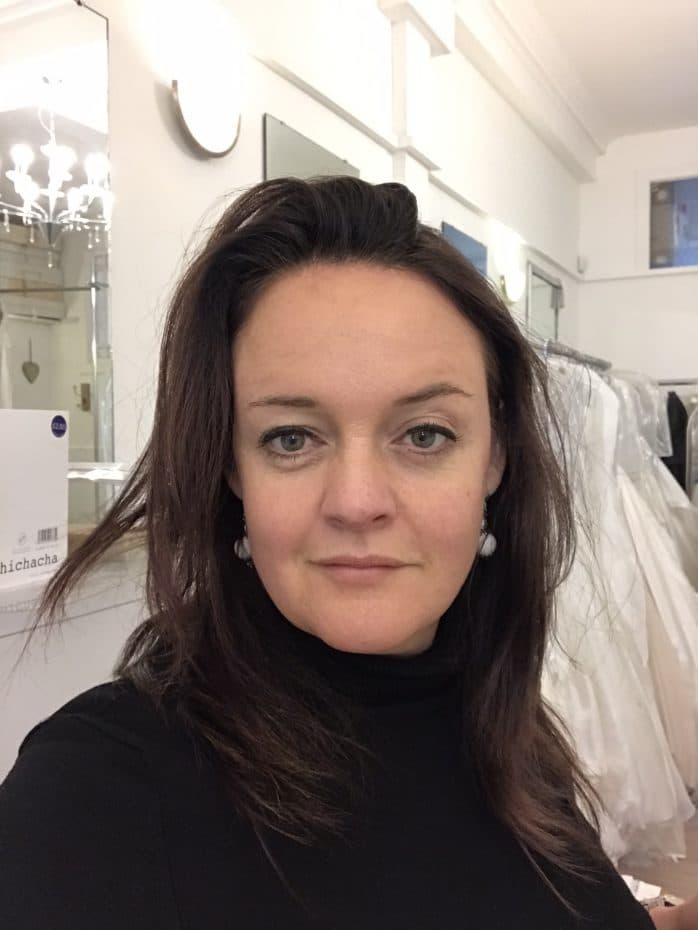
For more information on what you can do to help Scotland reach net zero visit http://www.netzeronation.scot/
